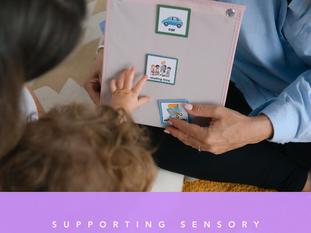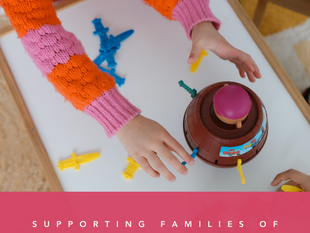top of page

Understanding the Disability Discrimination Act in Early Childhood Education and Care (ECEC): Why Inclusion Matters in Western Australian Childcare Settings
0
68
1
At Autism Inclusive, we often hear from families who have been told their child cannot attend a childcare service due to their support needs, or because they are “not yet diagnosed.” This is not just distressing for the family—it’s unlawful.

In Australia, the Disability Discrimination Act 1992 (Cth) and the Disability Standards for Education 2005 apply to all education providers, including Early Childhood Education and Care (ECEC) services. This means that childcare centres are legally required to make reasonable adjustments to support children with disabilities—including autism, whether diagnosed or not—and must not refuse enrolment or exclude a child on the basis of disability.
Turning away or unenrolling a child with a disability is discrimination.
Why This Matters
ECEC settings are often the first formal learning environment for young children. For many families, this is also where the early signs of autism or developmental delay may first be observed. For some parents, it is a time of confusion, uncertainty, and vulnerability. What families need most during this time is a safe, inclusive place where their child is seen, supported, and accepted.
When early learning centres respond with empathy, knowledge, and inclusivity, they not only help children thrive, but play a critical role in connecting families to early intervention and community support—potentially changing the trajectory of that child’s life.
But we must also acknowledge the significant challenges that many ECEC services face in making this vision a reality.
Barriers Faced by Childcare Services
Many childcare centres—particularly in Western Australia—are doing their best in a system that often lacks the necessary supports. Some of the common challenges include:
Limited staff-to-child ratios, which make it difficult to provide the additional support many neurodivergent children need.
Long wait times to secure inclusion funding (such as the Inclusion Development Fund), especially for children who are not yet diagnosed.
Lack of investment in staff training, particularly in privately-owned centres, where access to autism-specific professional development is inconsistent.
Time constraints, which limit the ability to upskill staff or engage in reflective practice.
Inability to backfill staff for training, leaving services short-staffed and overburdened.
High staff turnover, meaning educators may leave before they have had time to build trusting relationships with children and families.
Learning environments that are not sensory-friendly or adaptive to the needs of all children, due to outdated infrastructure or limited resources.
Limited understanding of how to integrate autism early intervention best practice into the EYLF
Therapy not being maximised and integrated into childcare routines

These barriers are real. But they are not insurmountable.
Understanding the Barriers Is the First Step Toward Inclusion
We can’t change what we don’t acknowledge. The reality is that many ECEC services want to do the right thing—but feel overwhelmed or unsure where to start.
That’s why at Autism Inclusive, we are committed to walking alongside early childhood educators and services. Through professional development, coaching, and consultation, we help teams:
Build capacity and confidence to support autistic and neurodivergent children;
Identify practical, realistic adjustments within existing constraints.
Create sensory-safe environments that work for all learners;
Foster inclusive mindsets across the whole centre.
Link into free training and development/ best practice resources
Why This Is Urgent
If we do not support inclusion at the earliest point of contact, we are placing children and families at serious risk of social isolation, delayed diagnosis, and missed opportunities for early intervention. The ripple effects of exclusion in early childhood can be profound and long-lasting.
But when we get it right, childcare can be a soft landing for families. A place of belonging. A place where a parent hears, “We see your child, we value them, and we’ll work with you to support them.”
That’s the kind of community we all want to be part of.
Stay Tuned: Upcoming Workshops for ECEC Providers
Our team at Autism Inclusive is passionate about supporting ECEC professionals to navigate these complex challenges with practical, evidence-informed solutions. Stay tuned for upcoming workshops, webinars, and tailored training packages designed to support early learning centres across Western Australia to become more inclusive and autism-affirming.
Let’s work together to make every early learning environment a place where all children—and their families—can thrive.
Related Posts
Comments (1)
bottom of page













sdfsdsd